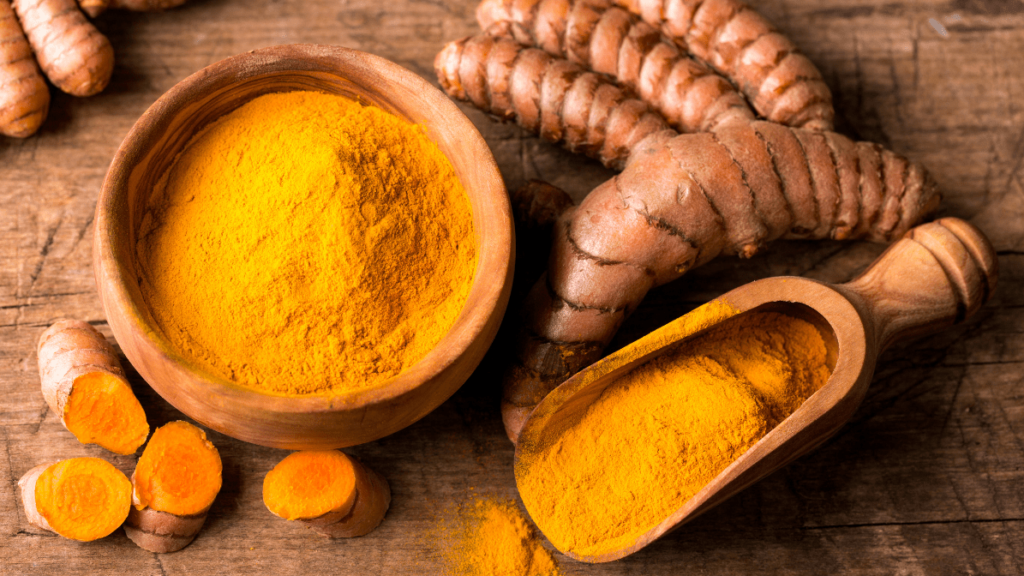Can you take turmeric and magnesium together?
In the world of natural health remedies, both turmeric and magnesium have gained significant attention for their potential health benefits. Turmeric, a vibrant yellow spice, is renowned for its anti-inflammatory and antioxidant properties. On the other hand, magnesium is an essential mineral involved in numerous bodily functions. Many individuals wonder whether it is safe and beneficial to combine these two substances. In this article, we will explore the potential interactions, benefits, and considerations of taking turmeric and magnesium together.

Understanding Turmeric and Magnesium
Turmeric
Turmeric, scientifically known as Curcuma longa, has been used for centuries in traditional medicine. It contains a powerful compound called curcumin, which contributes to its therapeutic effects. Curcumin has demonstrated anti-inflammatory, antioxidant, and antimicrobial properties, making it a popular choice for natural health enthusiasts.
Magnesium
Magnesium is an essential mineral involved in over 300 biochemical reactions in the body. It plays a crucial role in maintaining proper nerve function, muscle contraction, and the production of DNA and proteins. Additionally, magnesium supports bone health, regulates blood pressure, and promotes a healthy immune system.
Potential Benefits of Taking Turmeric and Magnesium Together
Taking turmeric and magnesium together can potentially offer several benefits for your health. Here are some of the potential benefits of combining turmeric and magnesium:
Anti-inflammatory effects:
Both turmeric and magnesium have anti-inflammatory properties. Turmeric contains a compound called curcumin, which has been shown to reduce inflammation in the body. Magnesium also plays a role in modulating inflammation. By taking turmeric and magnesium together, you may experience enhanced anti-inflammatory effects, which could be beneficial for conditions such as arthritis, joint pain, and inflammatory bowel disease.
Joint health:
Turmeric and magnesium may have synergistic effects on joint health. Turmeric’s anti-inflammatory properties can help reduce joint inflammation, while magnesium plays a crucial role in maintaining healthy cartilage and supporting joint function. Taking these two supplements together may provide support for joint comfort and mobility.
Heart health:
Both turmeric and magnesium have been associated with cardiovascular benefits. Turmeric may help reduce cholesterol levels and prevent the oxidation of LDL cholesterol, which is a risk factor for heart disease. Magnesium, on the other hand, is involved in maintaining normal heart rhythm, regulating blood pressure, and supporting overall cardiovascular health. Combining turmeric and magnesium may provide a dual approach to promoting heart health.
Cognitive function:
Curcumin, the active compound in turmeric, has shown promising effects on brain health. It has antioxidant and anti-inflammatory properties that may help protect brain cells and improve cognitive function. Magnesium also plays a role in brain health, as it supports neurotransmitter function and helps regulate neuronal activity. Taking turmeric and magnesium together may support cognitive function and potentially help with conditions such as memory decline and age-related cognitive impairment.
Mood support:
Both turmeric and magnesium have been studied for their potential benefits in supporting mood and mental well-being. Curcumin has been found to have antidepressant effects by modulating neurotransmitters in the brain. Magnesium plays a role in regulating mood and has been linked to a lower risk of depression and anxiety. By combining turmeric and magnesium, you may enhance their mood-supporting properties.
Improved Absorption of Turmeric:
Curcumin, the active compound in turmeric, has low bioavailability, meaning the body has difficulty absorbing it efficiently. Interestingly, magnesium has been found to enhance the
absorption of curcumin. By taking magnesium alongside turmeric, you may increase the bioavailability of curcumin, allowing your body to reap more of its potential benefits.
Enhanced Relaxation and Sleep Quality
Both turmeric and magnesium have been associated with relaxation and improved sleep quality. Turmeric’s anti-inflammatory properties may help alleviate conditions that disrupt sleep, such as pain and inflammation. Magnesium, on the other hand, promotes relaxation by regulating neurotransmitters and supporting the function of the parasympathetic nervous system.
Considerations and Precautions
Dosage and Individual Needs
The appropriate dosage of turmeric and magnesium can vary depending on several factors, including age, overall health, and specific health conditions. It is advisable to consult with
a healthcare professional who can provide personalized recommendations based on your unique needs.
Potential Interactions
While turmeric and magnesium are generally safe when taken within recommended doses, it’s important to be aware of potential interactions with medications. Turmeric may interfere with
blood-thinning medications, and magnesium can affect the absorption of certain antibiotics and medications for osteoporosis. It is essential to inform your healthcare provider about any
supplements you are taking to avoid potential interactions.
Digestive Side Effects
In some individuals, high doses of turmeric or magnesium can cause digestive discomforts such as diarrhoea or upset stomach. Starting with lower doses and gradually increasing the amount can help minimize these side effects. Additionally, choosing high-quality supplements from reputable sources can reduce the risk of impurities that may exacerbate digestive issues.
Conclusion
Combining turmeric and magnesium can potentially offer a range of health benefits due to their anti-inflammatory properties, enhanced absorption, and relaxation effects. However, it is crucial to consider individual needs, consult with a healthcare professional, and be aware of potential interactions or digestive side effects. By doing so, you can make informed decisions regarding the use of turmeric and magnesium supplements for your well-being.
Frequently Asked Questions
Can I take turmeric and magnesium if I’m on blood-thinning medication?
It is advisable to consult with your healthcare provider before combining turmeric and magnesium with blood-thinning medication. Turmeric may have mild blood-thinning properties, and the combination could potentially increase the risk of bleeding.
Are there any specific forms of magnesium that are better to take with turmeric?
While there is no specific form of magnesium recommended to take with turmeric, magnesium citrate and magnesium glycinate are generally well-absorbed forms. However, individual preferences and needs may vary, so consulting with a healthcare professional is advisable.
Can I take turmeric and magnesium if I have digestive issues?
If you have digestive issues, it is important to start with lower doses of turmeric and magnesium and gradually increase them to assess tolerance. Choosing high-quality supplements and consuming them with meals can also help minimize digestive discomfort.
Are there any side effects of combining turmeric and magnesium?
In general, turmeric and magnesium are well-tolerated when taken within recommended doses. However, high doses of either can lead to digestive side effects such as diarrhoea or upset stomach. It’s best to start with lower doses and monitor how your body responds.
Can I take turmeric and magnesium together with other supplements?
While turmeric and magnesium can often be safely combined with other supplements, it’s important to consult with a healthcare professional to ensure there are no potential interactions. Some supplements may interact with medications or have additive effects, so professional guidance is recommended.
Please note that the information provided here is for educational purposes only and should not substitute professional medical advice. Always consult with a healthcare professional before making any changes to your supplement regimen or starting new ones.




